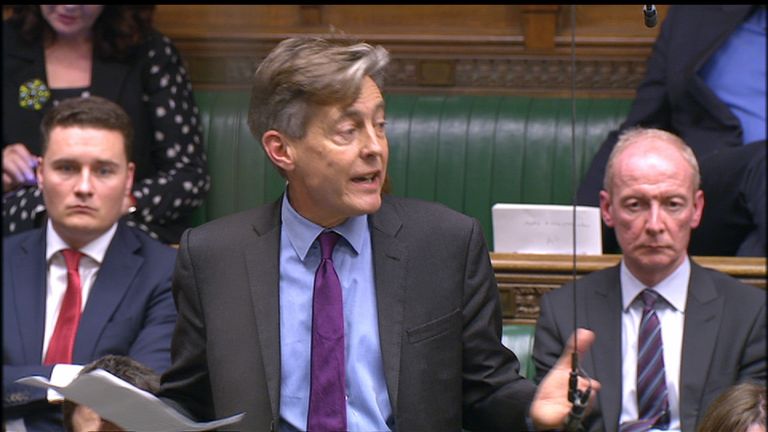Secrecy is damaging PM Theresa May's Brexit preparations, say Whitehall experts
Experts say the absence of a clear plan and the desire for secrecy are hitting preparations for Article 50 and later negotiations.
Wednesday 14 December 2016 08:02, UK
Secrecy is damaging Theresa May's preparations for triggering Article 50 and the Government's plans for Brexit negotiations with the EU, top Whitehall experts say.
New research by the Institute for Government suggests the Civil Service urgently needs to be told how to prepare for the negotiation process and the UK's future outside the European Union.
In a damning report, experts says the absence of a clear plan for Brexit and the desire for secrecy are hindering preparations for Article 50 and negotiations that will immediately follow.
The report called Whitehall's preparation for the UK's exit from the EU claims Whitehall departments are not working consistently across the board to ensure policies and implementation plans are in place to avoid a "cliff edge" when the UK leaves the Union.
The Prime Minister has been ridiculed for repeatedly refusing to give a "running commentary" on Brexit, while the "three Brexiteers" in her Cabinet - Boris Johnson, David Davis and Liam Fox - have been accused of making contradictory statements.
Last month at the CBI conference, bosses urged the Prime Minister to back a transitional deal to avoid business facing a "cliff edge" of a sudden and overnight transformation in trading conditions.
The PM responded by saying the Government was working to avoid a "cliff edge". And this week told MPs there was an "emerging view" in favour of a transitional deal.
In its report, the Institute for Government makes four demands on the PM, saying the Government must:
:: Provide more information on the process, timelines and expectations that departments need to meet by the time Article 50 is triggered.
:: Decide how it will run negotiations.
:: Ensure departments are doing sufficient planning, including how to realise the opportunities offered by Brexit.
:: Ensure departments have sufficient staffing and money for both Brexit and existing commitments, or acknowledge that plans must be trimmed.
The report also argues that, for many departments, Brexit may create a severe budget squeeze on top of significant spending cuts already planned.
It says some of the most affected departments - such as Defra and the Home Office - will have to work out how to meet the demands of Brexit with an already shrinking budget.
And some Brexit tasks, including the drafting of the Great Repeal Bill, are already proving to be more complex than anticipated, ministers are warned.
"We are rapidly approaching the triggering of Article 50," said Dr Hannah White, the institute's director of research.
"But our research shows that the civil service still doesn't have what it needs - in terms of money, staff and information - to enable politicians to get the best deal for the country."
Report co-author Robyn Munro told Sky News: "What we found when we spoke to departments is that a lot of them are looking to the Department for Exiting the EU (DEXEU) to provide a steer on what they should be doing, not just in terms of negotiations but also in terms of future planning.
"Interestingly, we also heard perceptions from others in Whitehall that it'll be down to other departments to think about how much forward planning they should be doing."






